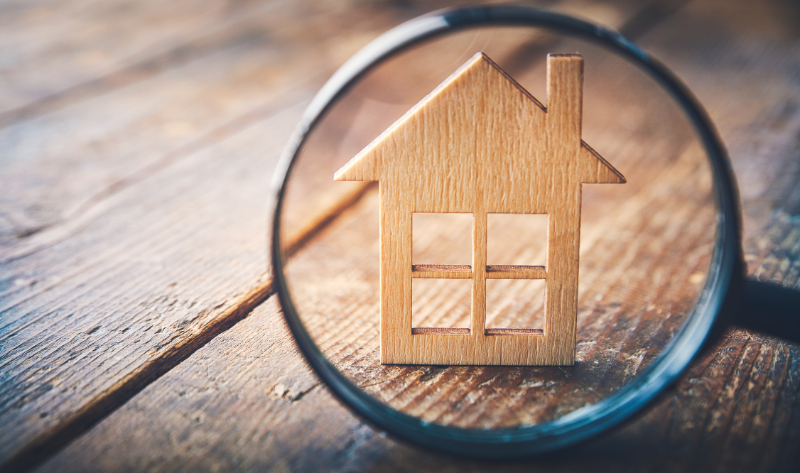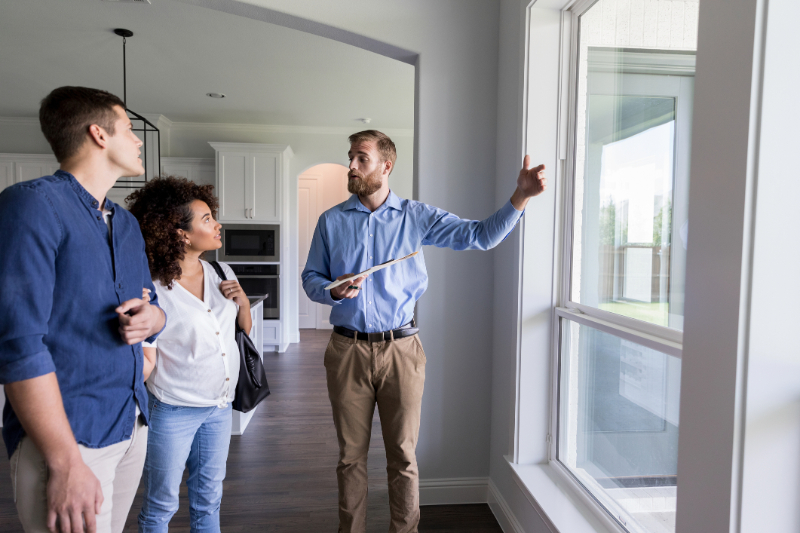
Taking the first steps to buy a new home can be daunting with so many things to do and consider. Buying a home is a significant expense and a long-term commitment, and from the start, you’ll want to make sure that you’ve got all your points covered and that you’re fully prepared for the venture.
By asking the right questions and knowing exactly what to look for when buying a house, the process will be more manageable. Here, we’ll go over some of the most important things to consider when you’re looking at prospective homes. This will help you crystalize what it is that you exactly want from your new home as well which in turn will help you streamline the buying process.
Table of Content
Preparing to house hunt
Before you begin your search for a home in earnest, there are some choices to be made and some points to establish.

Save for a down payment
Before thinking about what to look for when buying a house, consider how much you can put down as a down payment. This is your first payment of the home’s purchase price, which you’ll pay at closing. The remaining balance will be covered by your lender to whom you will pay your monthly mortgage.
The down payment can be under 20% of the home’s purchase price, which is about $88,000 for a $440,000 home – the typical home value in Bucks County, PA. Keep in mind that you’ll need to purchase mortgage insurance and pay interest throughout the life of your loan. This means that the larger you can put down upfront, the less interest you’ll eventually have to pay.
Determine a budget
To make an accurate estimate of how much you can afford for a home, you need to look at current mortgage rates, assess your down payment, and get approved for a mortgage. As a starting point, you can use online mortgage calculators from websites like Zillow, Bankrate, and Nerdwallet.
Don’t forget to take closing costs and other expenses related to purchasing a home, like legal fees and land transfer tax. Including these in your estimations will help you determine a more accurate budget.
Once you’ve come up with an ideal price range, stick to it! Getting swayed by more expensive homes that are far beyond your budget is a common mistake for many home buyers. While it is acceptable to very slightly exceed your initial budget if you are willing and able to make concessions, straying too far is a recipe for disaster. Overstretching yourself financially means you won’t be able to enjoy living in your new home, it will be a considerable struggle to constantly meet payments, and the chances of forfeiting are much higher.
Find a reliable and trustworthy real estate agent who can assist you as you navigate the process and help you find a home that matches your unique requirements and preferences within your budget.
Notify your agent if you’ve set a hard price limit, so they can limit the choices they present to you to only homes within your limit.
List down the features you want
Now that you’ve set a price and asked your agent to provide options that meet your budget, you can start making a list of features you want to have in your home.
Start from the basics like the number of bedrooms and bathrooms, and the type of layout, and then make your way to more specific items like walk-in closets, smart features, and covered patios. You don’t have to be too cautious at this point — if it’s something you want, jot it down! Just remember to keep in mind that a single home is unlikely to have everything you ideally want, although your agent will likely be able to show you homes that have many of the features you most want.
What to look for when buying a house
You are probably already aware of the number of baths and beds you’ll require, however, here’s a list to help you solidify exactly what you’re looking for in your ideal home.

Location
Location is one of the most important factors when considering what to look for when buying a house. Once you’ve purchased the home, you’ll be part of the community it’s located in, so you want to find a good fit.
Make sure to gather as much information as you can. Walk around the area and see what’s nearby. If possible strike up a conversation with current residents. Also, don’t be afraid to ask your real estate agent who’ll likely know all about the neighborhood. This will give a feel for the area and the community. Keep in mind important factors such as:
- Safety
- Proximity to schools
- Cost of living
- Duration of the commute to and from your workplace
- Amenities
- Access to shops, restaurants, and parks
- Available modes of transport
Don’t underestimate the importance of location. You may come across a good home but if it’s not in a great location, you may be better off looking till you find that home fits your needs in an area where you’ll be happier.
Noise levels
One of the most overlooked factors is noise level. An area might’ve been calm during a showing, but there’s no assurance that it’ll stay like that around the clock.
One of the best ways to gauge noise levels around the home is to visit the property at different times and days. Walk around the neighborhood and note down any loud noises like barking dogs and neighbors watching TV. If the home is located close to major highways or busy roads, check for sounds of traffic nearby.
You can get a sound level rating by typing the home’s address on the link, although nothing beats doing your own scouting or asking your agent.
Lot size
For some buyers, the lot size does not factor strongly into buying considerations. This may be especially true if buyers are used to living in high-density urban areas like downtown metros where lot sizes come at extreme premiums.
A home that comes with a large area of land around it can radically change and benefit your life. It may provide better views, a greater sense of seclusion and privacy, and more space for the kids to play. It also opens the possibilities of extending your home and creating specialized hobby rooms. So much can be done with bigger lots.
The home’s age and condition
Older homes and newer ones come with their own set of advantages and disadvantages. You want to carefully consider the pros and cons of each type before making an offer.
Although some older properties can be bought for a lower price, they may have a higher degree of wear and tear depending on how well they’ve been maintained. This might mean you’ll have to invest more in repairs, and renovations, or pay more in maintenance costs. Bear in mind some older homes may also have historical significance, which makes them subject to certain preservation guidelines.
New homes usually cost more than older ones since they are normally equipped with newer features and appliances. They’ll likely be more energy efficient too meaning you’ll save on energy costs throughout the year.
Exteriors
While a home inspection will shed light on the true condition of a home’s exteriors, knowing how to spot major issues will help you save time.
When viewing a house, be sure to examine these main exterior components:
- Roof – Installing a new roof will set you back around $5,000 to $15,000 or more. It’s a hefty expense you want to avoid as a new home buyer. Check the roof for signs of damage and find out when it was last replaced.
- Siding – Check exterior walls for rotting wood, peeling paint, and other signs of deterioration.
- Foundation – Problems with the foundation can cost thousands to tens of thousands to repair. Cracks on the walls (especially near windows and doorways) and jammed windows and doors are telltale signs of a bad foundation.
Bedrooms
You may have a set idea of how many bedrooms you’ll need but as with many things in life, plans can change. It’s always better to have a least one spare room should your circumstances change. This room can be converted into a home office, gym, playroom, or anything else you have in mind if it’s never needed as a bedroom.
Other important things you’ll need to consider for bedrooms are the square footage, closet space, views from the windows, whether the primary bedroom has a bathroom, and their location in relation to busier parts of the house like the living room and kitchen.
Bathrooms
Check the bathrooms to ensure everything’s in good condition:
- Test all showers, faucets, and toilets.
- Look for leaks and water damage around the toilet and under the sink.
- Make sure the exhaust fan is working.
- Check for signs of mold.
- Take note of the type of tub and shower in every bathroom and see if they accommodate your needs.
Bathroom renovations are a major expense, so be sure you’re either satisfied with the current state of the bathrooms or are willing to pay for upgrades down the line.
HVAC systems
The heating, ventilation, and air conditioning (HVAC) system is one of the most important parts of a home. When checking the HVAC system, take note of the following:
- When the heating and cooling systems were installed.
- The type of heating system it has, whether it uses a boiler and radiator system, a furnace-powered forced air system, or electric baseboard heaters.
- If the home has central air or window unit air conditioners.
The type of HVAC system installed affects your utility costs, so remember to factor this into your budget.
Windows and lighting
Take note of how much natural light comes in from the home’s windows and if the windows are positioned to take advantage of the natural light.
A window that looks into the side of your neighbor’s home might not be too appealing. The room might also require an additional light source in case it doesn’t get too much light from outside.
While you can always add more lights and outlets later on, having ones that are already in place means you’ll have less to deal with when you move in.
Storage space
Some homes come with small closets and a limited amount of storage space. So when you’re looking at potential homes, try to envision where you’ll be able to store your belongings, especially large and bulky items like sports equipment, collections, seasonal apparel, and home décor.
If storage is important, you may want to focus on newer properties, as they tend to offer more storage space. While it’s true that you can add more storage space to any home, this could mean having to sacrifice usable space, such as turning an additional bedroom into a large closet. Homes with unfinished basements or cellars can be the perfect locations for storage. Or you may be able to build extra storage space if you have enough lot space.
What to do after you’ve found the right home

Once you’ve found a home that ticks most if not all your boxes and makes you feel as if you could be happy there, you’ll naturally start getting very excited about sealing the deal. However, there are still a few steps to go before you can close with peace of mind.
Home inspection
There may be major problems with the home you’re planning to purchase that you might not have noticed during a visit. Getting a professional home inspection will give you a detailed look at the home’s current condition and expose any underlying problems.
Even if your mortgage lender only requires a home appraisal checking for minimum building standards, hiring an independent inspector is still a wise move. The final results could ultimately sway your decision on whether to buy the home.
Final walkthrough
Schedule a final walkthrough with your agent before you officially close on the home. You want to make sure that any necessary repairs identified during an inspection have been addressed, and that there are no unforeseen changes. It should still be in the same condition—if not better—since the last time you saw it.
Check every room and collect any belongings the seller may have left behind. Look in the attic, basement, garage, and all of the closets, and mark off every room you’ve checked to make sure you don’t miss an area.
Review the acceptance letter to check if all fixtures, appliances, and other items the seller agreed to leave behind are still there. Notify your agent in case anything part of the agreement is missing.
BROWSE THE BEST HOMES IN BUCKS COUNTY, PA
Now that you have more information on what to look for when buying a house, it’s time to choose from the finest selection of properties in Bucks County.
The elite team of agents from 20/20 Real Estate is here to make your real estate transaction as smooth and stress-free as possible. Through their experience and unmatched local knowledge, you’ll be on your way to realizing your real estate goals in this sought-after market.
Get in touch with 20/20 Real Estate by calling 215.357.2020 or by sending an email. You can also leave a message here. We’d love to hear from you.
